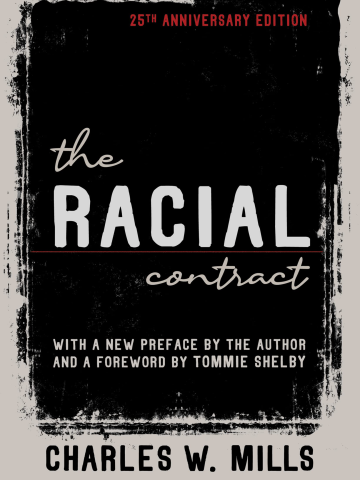Article |
Graham Students Gather to Discuss Late Philosopher Charles Mills’ Groundbreaking Book, The Racial Contract
A three-day, online book discussion led by IDEA Committee member Vijay Jayaraman sparks open exchange around race and identity.

In 1997, philosopher Charles Mills’ first book, The Racial Contract, hit bookstore shelves and the London-born, Jamaican-raised Mills refused to pull any punches.
The opening sentence of The Racial Contract powerfully began: “White supremacy is the unnamed political system that has made the modern world what it is today.”
Over 133 pages, Mills argued that white supremacy is baked into Western society. While the social contract popularized by the likes of Thomas Hobbes, John Locke, and Jean-Jacques Rousseau celebrated the give-and-take relationship between the state and the individual – namely, individuals consenting to be governed in the interest of fostering a better collective life for all – Mills charged that social contract theory was steeped in racism.
Mills’ argument, radical as it appeared to many in the late 1990s, “both foreshadowed and framed contemporary debates about white supremacy and structural racism,” The New York Times wrote upon the philosopher’s death in September 2021.
Indeed, a quarter-century later, amid a rising tide of racial reckoning in the U.S., Mills’ landmark book stands as relevant and worthy of conversation as ever.
Such is why the Graham School’s Inclusion, Diversity, Equity, and Access (IDEA) Committee organized a book discussion group centered around Mills’ thought-provoking text this past summer. Over three nights in August, 16 members of the Graham community gathered online to examine The Racial Contract.
“The idea was to take a relevant text with important issues to consider and, in the true Graham School style of rigorous inquiry, think about it and talk about it,” says Vijay Jayaraman, an IDEA Committee member and the discussion group’s facilitator.
Norma Fay Green, who began taking Graham classes in the late 1970s, says she had never heard of Mills or The Racial Contract prior to learning about the book discussion group. Yet, having a self-described “palpable investment” in the nation’s racial history through genealogical investigations and the experience of growing up in an all-white suburb, she wanted to interrogate Mills’ work and hear others’ perspectives.
“There were many poignant personal testimonies about race and identity that the text provoked,” Green says.
Fresh off completing a Graham course titled 21st Century African American Perspectives on Race and absorbed in reading books on slavery, Reconstruction, and race relations over recent months, Bob Lockner learned of The Racial Contract discussion group and immediately registered. While Mills’ 25-year-old book proved a stimulating read, Lockner found himself most intrigued not by Mills’ assertions but rather by the input of his fellow group participants.
“Discussing the book became a catalyst for the participants to express their views on race, how that affects their own sense of themselves, and how they wanted to make that matter in the world,” Lockner says.
While Jayaraman acknowledges the emotive nature of the topics The Racial Contract covers, he champions the benefits of exploring Mills’ arguments and doing so in the earnest learning environment Graham has cultivated across three different centuries, where open discussion plays a vital role in the reader’s discovery process.
“Conversations about tough topics like politics and race require a space where we can spend time thinking about these issues and have dialogue with thoughtful people to broaden our minds,” Jayaraman says, adding that Graham students generally possess sincere concerns about society and its future – and a willingness to drive improvements. “That’s why it’s so important to have these opportunities for discussion and learning, as it enables us to approach situations in a more informed manner.”


